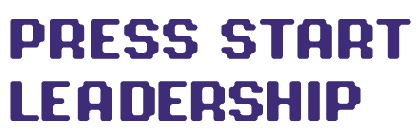Navigating Challenges, Fostering Collaboration, and Boosting Morale in Remote Game Development
The landscape of game development has experienced a significant transformation with the advent of remote work. The traditional notion of a centralized studio space is evolving as game development teams embrace the flexibility and benefits of remote collaboration. As virtual work environments become the new norm, the art of leading remote game development teams has taken center stage. This article delves into the intricacies of remote game development, exploring the challenges and opportunities that arise when leading virtual teams. We will delve into effective communication strategies, remote collaboration tools, and the essential task of maintaining team morale, all of which contribute to the success of remote game development projects.
The Rise of Remote Game Development
The game development industry has always been dynamic, constantly evolving with new technologies, platforms, and player preferences. One of the most significant shifts in recent times has been the widespread adoption of remote work. The rise of remote game development has been accelerated by factors such as advances in communication tools, the need for flexibility, and the unprecedented events that have reshaped how we work.
The Transformation of Workspaces:
Traditionally, game development studios have been bustling hives of creativity, with teams collaborating side by side to bring digital worlds to life. However, the rise of remote work has challenged this status quo. Teams no longer need to be in the same physical location to create exceptional games. Instead, technology has enabled virtual collaboration, allowing talented individuals from different corners of the world to contribute their expertise.
Embracing Flexibility:
One of the most compelling reasons for the surge in remote game development is the flexibility it offers. Game developers no longer need to uproot their lives to join a specific studio; they can work from the comfort of their homes, eliminating long commutes and enabling a better work-life balance. This flexibility not only attracts top talent but also allows developers to focus more on their craft.
The Challenges of Leading Virtual Teams
While remote game development offers numerous benefits, it also presents unique challenges that leaders must navigate to ensure the success of their projects. These challenges extend beyond technical obstacles and touch on aspects that are crucial for effective team dynamics and collaboration.
Communication Hurdles:
Effective communication is the lifeblood of any collaborative endeavor, and this holds especially true for remote game development. With team members spread across different time zones and relying on various communication platforms, ensuring clear and timely communication becomes paramount. Misunderstandings, delayed responses, and lack of face-to-face interactions can hinder progress and lead to frustration.
Nurturing Team Bonding:
Building a sense of camaraderie and team spirit is often easier in a physical office environment, where casual conversations and shared experiences naturally occur. In remote settings, fostering such connections requires deliberate effort. Team members might miss out on the water cooler chats and after-work hangouts that contribute to a strong team bond.
Maintaining Accountability:
In a remote game development setup, team members have more autonomy over their schedules. While this can enhance productivity, it also demands a higher level of self-discipline. Without direct supervision, individuals must take responsibility for managing their time and meeting deadlines. Leaders need to implement effective accountability measures that keep everyone on track.
Effective Communication Strategies
Establishing Clear Channels:
Clear and consistent communication channels are the cornerstone of successful remote game development. Utilize a combination of messaging platforms, video conferencing tools, and project management software to ensure that every team member knows where to find important information and how to reach out to colleagues.
Regular Check-Ins:
Scheduled check-ins, whether in the form of daily stand-up meetings or weekly updates, help keep everyone aligned and informed about the team’s progress. These meetings also offer an opportunity for team members to share their achievements, discuss challenges, and seek assistance from their peers.
Cultivating Openness:
Remote team members should feel comfortable expressing their opinions, raising concerns, and offering suggestions. Encourage an environment of openness where individuals feel empowered to voice their thoughts without fear of judgment. This fosters a culture of collaboration and continuous improvement.
Remote Collaboration Tools
To overcome the challenges of remote game development, teams can leverage a wide range of tools designed to facilitate collaboration, project management, and communication.
Project Management Platforms:
Project management tools like Trello, Asana, and Jira are indispensable for remote game development. These platforms allow teams to create task lists, assign responsibilities, set deadlines, and track progress. By providing a centralized view of the project, these tools streamline workflows and ensure that everyone is on the same page.
Version Control Systems:
Version control systems, such as Git, play a critical role in ensuring that team members can collaborate on code seamlessly. These systems enable multiple developers to work on the same project simultaneously without overwriting each other’s work. They also maintain a history of changes, making it easier to revert to previous versions if needed.
Virtual Reality Collaboration:
As technology continues to advance, virtual reality (VR) collaboration tools are emerging as an innovative solution for remote game development. These tools create virtual spaces where team members can meet, discuss ideas, and even prototype in a 3D environment, simulating the feeling of working together in a physical space.
Maintaining Team Morale and Engagement
Maintaining team morale and engagement in a remote game development environment is essential to ensure that team members remain motivated, connected, and excited about their work.
Creating Virtual Watercooler Moments:
Recreate the informal interactions of an office environment by setting up virtual spaces for casual conversations. Whether it’s a designated chat channel for non-work-related discussions or a weekly virtual coffee break, these moments contribute to team bonding and a sense of community.
Recognition and Appreciation:
Recognizing and appreciating the efforts of remote team members is vital for boosting morale. Celebrate milestones, acknowledge achievements, and publicly express gratitude for a job well done. Simple gestures of recognition can go a long way in making team members feel valued and motivated.
Skill Development and Growth:
Provide opportunities for skill development and career growth within the remote team. Offer online courses, workshops, and mentorship programs to empower team members to enhance their skills and take on new challenges. A focus on personal growth demonstrates the organization’s commitment to its employees’ long-term success.
Navigating Challenges and Opportunities
Overcoming Time Zone Differences:
One of the most significant challenges in remote game development is coordinating across different time zones. Teams spanning the globe may have overlapping work hours, making real-time collaboration difficult. Leaders must find ways to balance team members’ schedules, ensuring that essential meetings and discussions accommodate everyone’s availability.
Bridging Cultural Diversity:
Remote game development often brings together individuals from diverse cultural backgrounds. While this diversity can be enriching, it can also lead to misunderstandings due to varying communication styles and cultural norms. Leaders must foster an environment that values and respects cultural differences while promoting effective communication and collaboration.
Mitigating Isolation:
Isolation and loneliness can be prevalent among remote team members, especially when working from home for extended periods. Leaders should actively address this issue by organizing virtual social events, encouraging regular interactions, and facilitating opportunities for team members to bond on a personal level.
Nurturing Creativity and Collaboration
Encouraging Idea Sharing:
Creativity thrives when team members feel comfortable sharing their ideas, regardless of their location. Leaders should create platforms and spaces where team members can brainstorm, pitch concepts, and collaborate on innovative features. Virtual whiteboards, online brainstorming sessions, and dedicated forums can facilitate idea sharing.
Virtual Design Thinking Workshops:
Design thinking is a powerful methodology that can spark creativity and problem-solving. Organize virtual design thinking workshops where remote team members can collectively tackle challenges, identify user needs, and generate innovative solutions. These workshops promote cross-disciplinary collaboration and fresh perspectives.
Fostering Team Morale from Afar
Gamification of Remote Work:
Injecting an element of fun into remote work can boost morale and engagement. Leaders can implement gamification techniques, such as setting up challenges, leaderboards, or virtual rewards for achieving milestones. This approach turns work into a dynamic and motivating experience.
Personalized Development Plans:
Remote team members may miss out on casual in-person conversations about career goals and growth. Leaders should proactively engage in one-on-one discussions to create personalized development plans for each team member. This shows a commitment to their professional growth and aligns their aspirations with the team’s objectives.
Sustaining Team Collaboration
Cross-Functional Collaboration:
Encourage cross-functional collaboration by organizing interdepartmental meetings or workshops. For instance, bringing artists, programmers, and designers together to brainstorm and share insights can lead to more holistic and innovative solutions.
Virtual Team-Building Activities:
Virtual team-building activities play a vital role in nurturing team spirit and camaraderie. From online escape room challenges to virtual trivia nights, these activities create opportunities for team members to bond, have fun, and build lasting relationships.
Measuring Remote Team Performance
Key Performance Indicators (KPIs):
Develop clear and measurable KPIs that reflect the success of remote game development projects. These KPIs could include metrics like project completion rate, code quality, user engagement, and customer satisfaction. Regularly track and analyze these indicators to assess team performance and identify areas for improvement.
Continuous Feedback Loop:
Establish a culture of continuous feedback by conducting regular performance evaluations and one-on-one discussions with team members. Constructive feedback helps remote team members understand their strengths and areas for growth, fostering a culture of improvement and excellence.
Final Thoughts
The art of leading remote game development teams is a multifaceted endeavor that requires a deep understanding of both the technical and human aspects of the industry. By recognizing and addressing the challenges unique to virtual collaboration, embracing effective communication strategies, utilizing remote collaboration tools, and prioritizing team morale and creativity, leaders can guide their teams toward success.
In the rapidly evolving landscape of game development, the art of remote leadership will continue to shape the industry’s future. As technology advances and the benefits of remote work become more evident, mastering the intricacies of leading virtual teams will remain a vital skill for both established and emerging leaders in the field. By embracing the opportunities presented by remote game development and fostering an environment where innovation and collaboration thrive, game development studios can achieve remarkable success while transcending geographical boundaries. Through continuous adaptation, dedication, and a commitment to nurturing the virtual studio environment, leaders can unlock the full potential of their remote game development teams and create extraordinary experiences for players worldwide.
Thank you for reading this article to the end. I hope it has been informative and helpful. If you’d like to learn more about the topics we covered, I invite you to check out my podcast and my YouTube channel where I delve into these subjects in more depth.
Additionally, I would love to stay in touch and keep you updated on all the latest developments and insights in the world of leadership. That’s why I encourage you to sign up for my newsletter. Not only will you receive regular updates, but as a thank you for joining, I will also send you my free eBook, “5 Heroic Leadership Skills.” This eBook is packed with practical tips and strategies that will help you take your leadership skills to the next level.
So don’t wait! Sign up for my newsletter today and start your journey towards becoming a more effective and inspiring leader. I can’t wait to hear from you.


